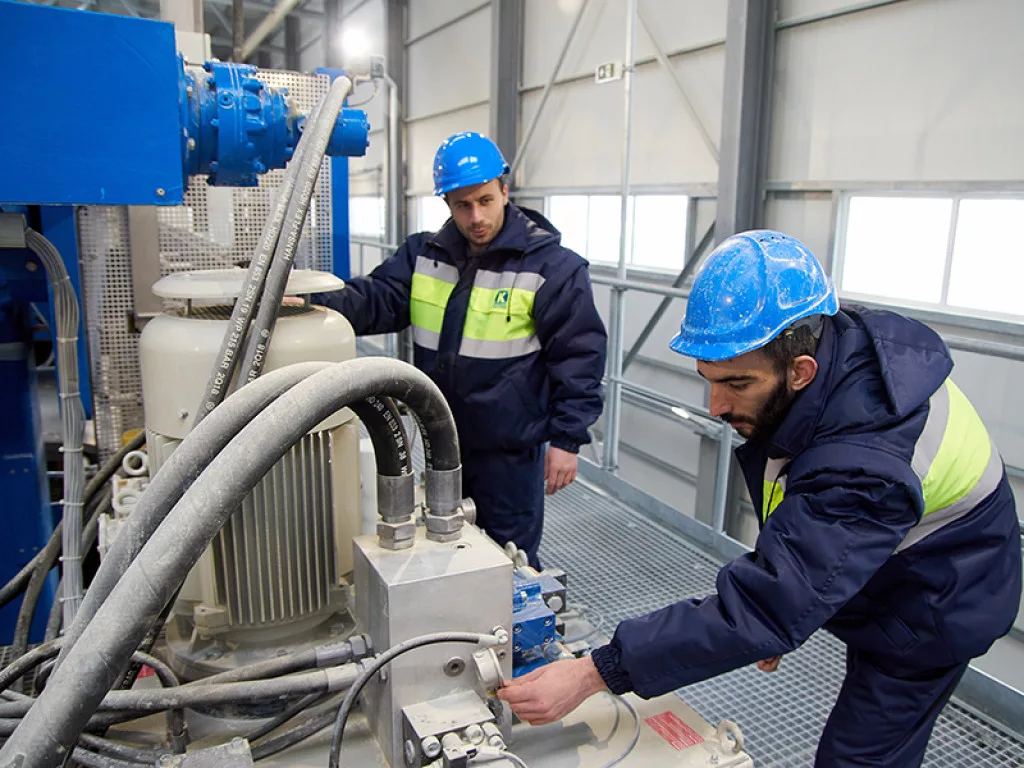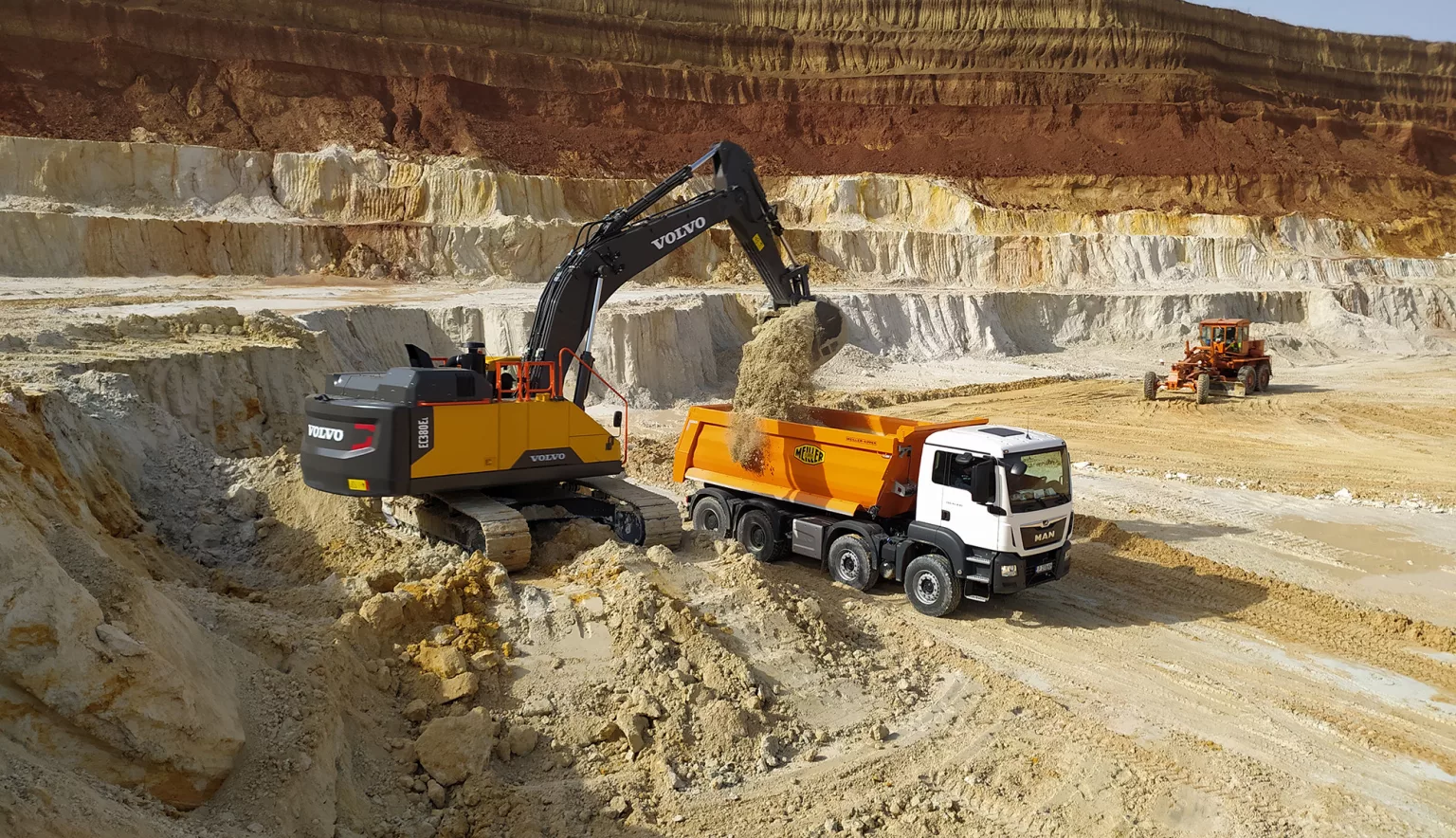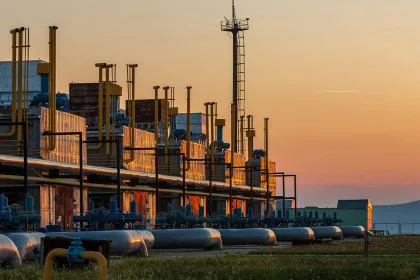Dr Wolf Harlfinger, CEO at Kaolin, discusses the state of mining in Bulgaria today.
MINING IN BULGARIA
Particularly in Western Europe, now more than ever, the mining industry has to manage a number of partially diverging stakeholder perspectives,” begins Dr Wolf Harlfinger.
Harlfinger has served as CEO at Kaolin since 2013. During his tenure, he has witnessed how the industry has changed over the years and believes it is this dynamism which keeps him engaged.
“There is also the customers’ demand for a reliable supply of first-class products, society’s expectation for sustainability and nature preservation, the staff’s need for a safe and predictable work environment and, last but not least, owners’ expectations for long-term path of growth,” says Harlfinger.
“It is my role to understand these perspectives, balance them and communicate the way forward. This is a very exciting and colourful job – with the cultural differences between Germany and the Balkan countries giving some additional spice.”
Upon initially joining the firm, Harlfinger was fascinated by the combination of a long and proud history.
“As luck would have it, a few days after my joining of Quarzwerke Group the acquisition process for Kaolin EAD/Bulgaria started which we successfully closed in 2013,” he says.
“That is when I had the great opportunity to become a member of our Bulgarian team and step in as CEO of the company. Getting my wife and my four kids on board proved easier than expected – we all moved to Sofia for this exciting experience.”
However, by his own admission, his route into the industry wasn’t traditional.
“My way into the industrial minerals industry in Bulgaria was not usual,” explains Harlfinger.
“After my high school graduation, I enrolled in the study of law. I spent my first seven years as a professional in an international law firm in Germany and the UK servicing various industrial clients in corporate and commercial activities.”
The industrial minerals industry is one of the foundations for almost all sectors within the manufacturing space. Today, Kaolin is one of the leading producers of industrial minerals in South Eastern Europe. Its activities are focused on the extraction, processing and refining of kaolin, quartz, feldspar, limestone, dolomite and clay, while the company’s products are key raw materials particularly for the ceramics and the glass industry.
With almost 100 years of experience, Kaolin EAD sits under the Quarzwerke Group and the firm operates 12 plants in Bulgaria, Serbia and Ukraine, providing employment to more than 1,300 people and serving customers worldwide in 40 different countries.
The firm has also upgraded its rotary kiln in Vetovo which is used to fire kaolin at temperatures above 1,000°C, turning into chamotte for special applications.
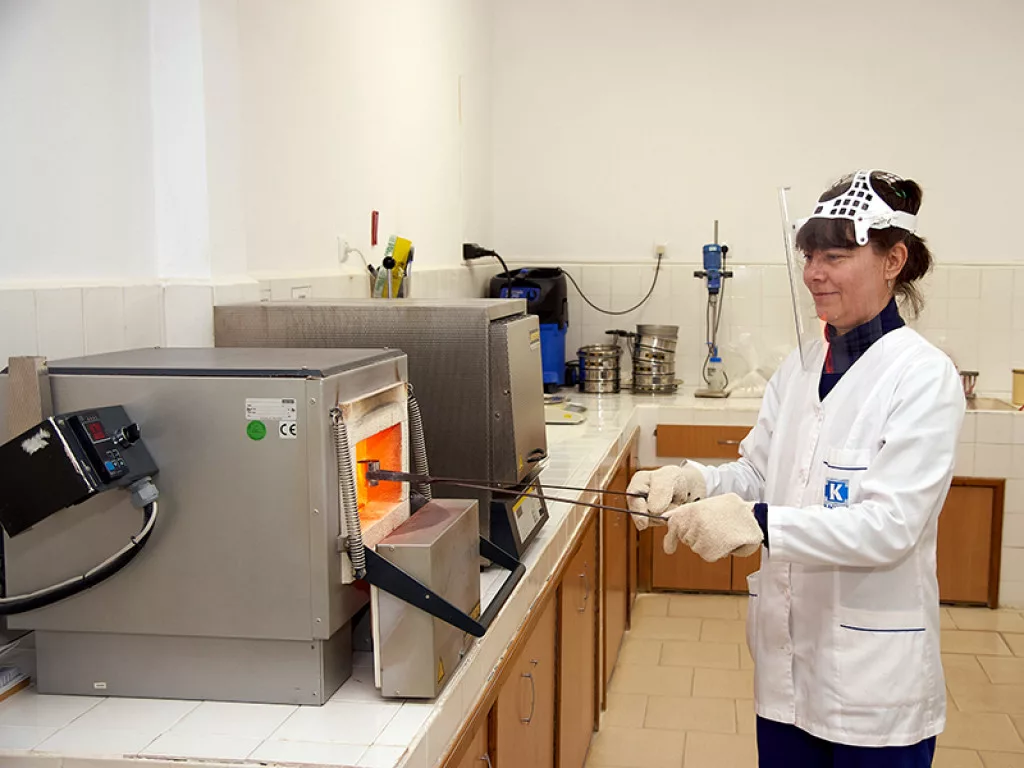
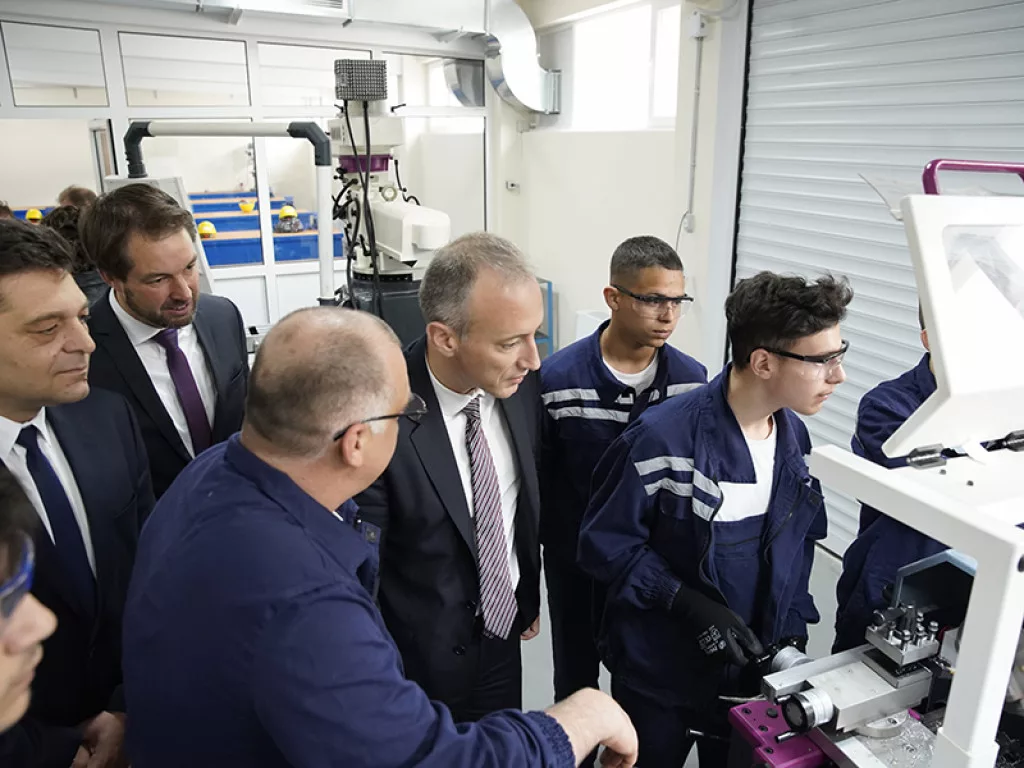
“The new installation allows us to use sunflower husks as fuel instead of natural gas,” he says. “Thus, approximately 10 cubic metres of natural gas were saved in the last five years.
A huge success for our engineering team which brought us a number of innovation awards.”
Harlfinger believes that the investment brings significant benefits and is proud to have played his part in bringing the project to fruition.
The most significant project in the entire Quarzwerke Group is the greenfield investment into a new plant for the processing of kaolin and silica sand in Dulovo, Bulgaria.
“After extensive exploration works, two substantial deposits near Dulovo in North Eastern Bulgaria could be secured. Mining operations will start in 2021, the new plant in the vicinity of the quarries shall go into operation in 2024,” says Harlfinger.
“Another focus area of our current investment activities is energy efficiency and CO2-footprint reduction. In that context, we will start to operate our own solar plant in 2022 which will feed electricity directly into our single biggest plant in Vetovo, replacing a material part of electricity supplied from the grid.”
Despite mining often being considered as an industry that is slow to adopt new technology; automation, digitisation and electrification are beginning to play a more influential role in the sector.
“Technology serves two main functions in the mining industry: ensuring consistent supply of premium quality products and analysing and controlling costs,” explains Harlfinger.
“Both aspects have been driving modernisation of our production units – on the one hand through modernisation of processing equipment and on the other hand through an automation and digitalisation of all processes, ensuring a constant and reliable tracking of all performance data.
“The technological upgrade of the plants is, however, only one part of the picture. Technology is of little use without staff to operate it, so investing in training and qualification is as important as investing into technology.”
Indeed, investing in staff is a key pillar to Kaolin’s overall strategy. Harlfinger believes that finding, training and retaining staff in remote areas of Bulgaria is a ‘seismic challenge’, but has introduced initiatives to help navigate the situation.
“In recent years, we have established an internal qualification programme, the Kaolin Academy, which focuses on hard as well as on soft skills for all employee levels,” he says.
“We also cooperate with external institutions, particularly national and international mining universities, to train our management.
“Mutual trust and respect, a sharing of success and disappointment, transparency and reliability are the values on which we want to build our internal culture. We seem to be doing well and staff loyalty is high with a turnover rate of less than five percent.”
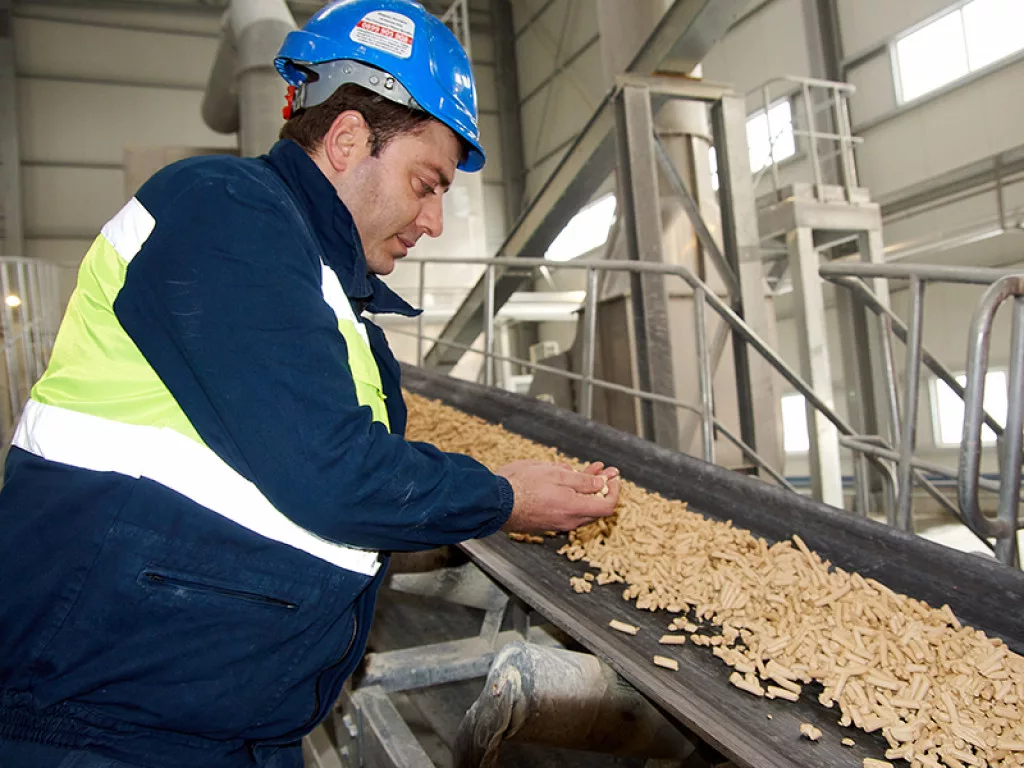
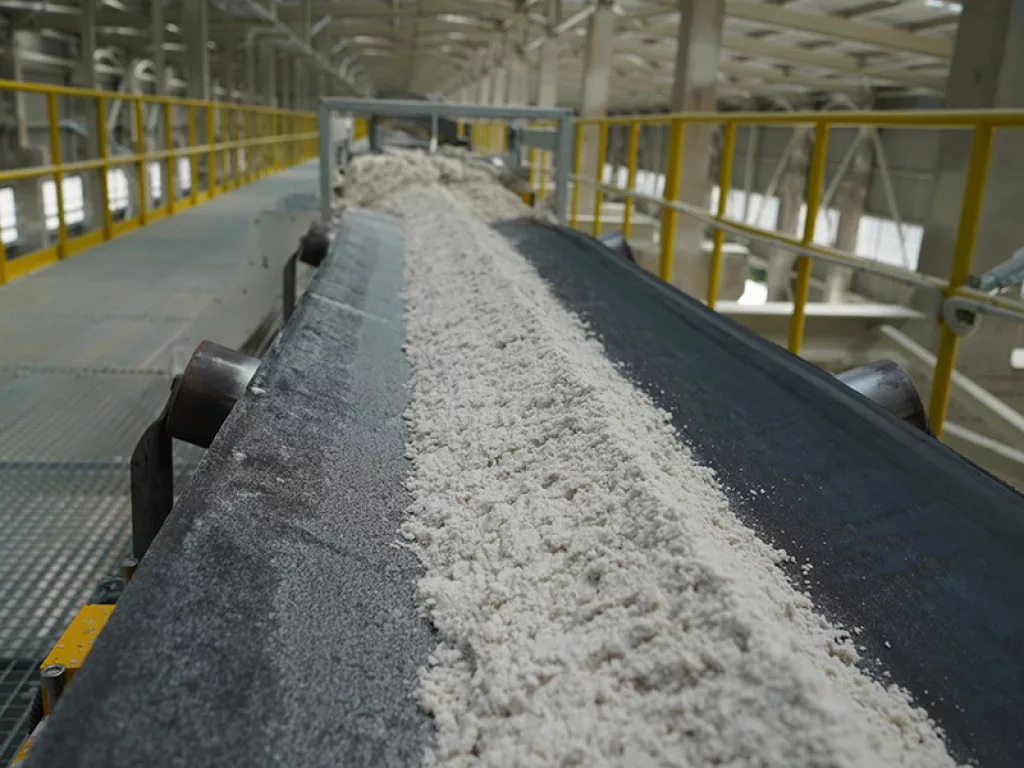
As the coronavirus gripped the world, Bulgaria was among one of the first countries in Europe to lockdown in a bid to curb the spread of the disease. For Kaolin, the firm introduced a set of measures to avoid the spread of the disease within the organisation.
“We had to adapt our operations and logistics to the material impact the worldwide lockdowns had on the markets,” Harlfinger elaborates.
“So far, we have been successful with our very quick and decisive approach. There have been individual infection cases among our staff which we identified and isolated. In terms of our business, we faced a steep decline in demand during the most severe phase of the crisis in April and May 2020. During that phase, we stopped production in our main plants in Bulgaria for a period of about one month. The second half of the year showed a recovery of demand.”
To Kaolin, partnerships are central to operations and Harlfinger explains that as a producer of raw material, his firm isn’t reliant on pre-products.
“We primarily rely on producers of mining and processing equipment as key suppliers. Many beneficiation processes in our plants are tailor-made. That is why we are looking for partners who do not only want to sell equipment, but who consider themselves as solution-oriented technology providers.”
The organisation also believes in sustainability. For Harlfinger, he affirms that ‘social responsibility is not only a mission statement, but a credo.’
“We do not appear as an anonymous corporation, but as an approachable and sincere family-run organisation,” he adds.
“All of our corporate social responsibility initiatives focus on the local communities we work in and are tailored to the local needs and expectations. In Germany, we are engaging intensively in numerous activities around the fascinating nature in and around our quarries and recultivation areas. In Bulgaria, where we primarily operate in the country’s poorest regions, our attention lies on the basic needs of supporting healthcare, education in kindergartens and schools and help for elderly and disabled.”
With the future in mind, Harlfinger has a clear idea of what the next few years could hold.
“Firstly, we have to overcome the crisis and keep staff healthy and secure,” he affirms.
“We are striving to combine long-term partnerships with our customers with the commitment to social commitment and biodiversity. We are proud that this ambition is publicly recognised and awarded with multiple prices. Secondly, we have to stabilise the business. In terms of the strategic development of the company, we will become more energy and labour-efficient in our existing core business lines and strengthen our footprint in specialty applications.”
